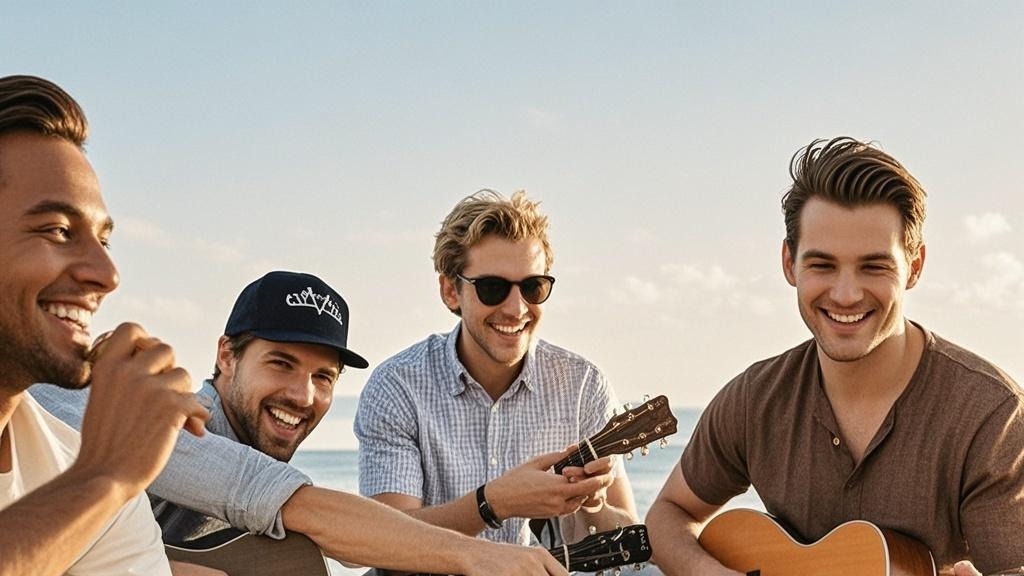Sharing locations indefinitely with friends through the Find My app has become a modern marker of trust, affection, and even accountability—especially among groups who prioritize safety, like women and LGBTQ+ communities. What started as a practical tool for coordinating meetups has evolved into something deeper: a digital lifeline that reassures us when someone’s out late, a playful way to keep tabs on far-flung friends we call "Sims," and, yes, occasionally a source of unintended drama when someone’s location reveals an unannounced trip or a missed invite. For many, particularly Gen Z, sharing your whereabouts isn’t just logistical—it’s emotional. Over half see it as a form of affection, a way to say, "I trust you with my every move." But as with any tool that blurs the lines between utility and intimacy, there’s a flip side: the potential for hurt feelings, overanalysis, and even reevaluating friendships when the digital breadcrumbs don’t match our expectations.
The Safety Net (and the Social Side Effects)
For marginalized communities, location sharing isn’t just about convenience—it’s often a safety strategy. When you’re part of a group disproportionately affected by harassment or violence, knowing a friend can pinpoint your last known location isn’t paranoid; it’s pragmatic. But this layer of security comes with social nuances. The same app that lets you confirm a friend made it home from a sketchy first date also means they might notice you grabbed drinks two blocks away without inviting them. The Bumble For Friends survey highlights this duality: nearly half of Gen Z checks Find My as habitually as Instagram, turning what was once a behind-the-scenes utility into a quasi-social platform where unspoken expectations lurk. If you’ve ever felt a pang seeing friends clustered at a bar you weren’t invited to, you’re not alone—the transparency of location sharing can amplify FOMO in ways a vague Instagram story never could.
When "Sims" Stop Playing Nice
The sting of discovering a friend’s unannounced visit via Find My isn’t just about exclusion—it’s about the dissonance between what we assume our friendships are and what the data (in this case, a blinking avatar) reveals. In my case, seeing a best friend’s icon pop up in my city without a heads-up felt like a quiet betrayal. The aftermath—her hiding her location next time—was even more telling. These moments force a reckoning: Is location sharing a privilege of closeness, or does it create unrealistic expectations of constant connection? Unlike social media, where you curate what you share, Find My operates in the background, broadcasting movements you might not think to narrate ("Running errands" isn’t exactly headline-worthy). When a friend opts out or obscures their dot, it can feel like a step back in intimacy, even if their reasons are benign (maybe they just hate feeling surveilled).
The Accountability Paradox
There’s an unspoken contract with indefinite location sharing: If you say you’re "on your way," your friends can verify it. If you bail on plans early, they’ll see you dip. This accountability can be healthy—nobody likes the friend who’s perpetually "five minutes away" while still in bed—but it also turns everyday interactions into potential audits. The app doesn’t just track where you are; it logs how long you stayed, who else was there, and whether your story adds up. For some, this fosters honesty; for others, it breeds performative behavior (like lingering at a party you’re not enjoying just to avoid the "left at 9:03 PM" receipt). And let’s be real: Nobody wants to explain why their dot spent 45 minutes outside an ex’s apartment at 2 AM.
Boundaries in the Age of Digital Oversharing
The key to avoiding Find My-fueled friction? Communication. Not every friend group will treat location sharing the same way. Some might view it as a safety blanket, others as a casual convenience, and a few as overbearing. Normalize checking in: "Hey, I noticed you turned off sharing—everything okay?" might reveal they’re job-hunting in secret or just needed a break from the digital gaze. Likewise, if you’re the one feeling uneasy, it’s okay to say, "I love our Sims squad, but I need to toggle off for a bit." Remember, the app’s original purpose—safety—doesn’t require 24/7 access. Temporary sharing for late-night outings or travel can offer peace of mind without the pressure of perpetual visibility. And if a friendship fractures over location settings? That says more about the relationship’s foundation than the tech itself.
At its best, Find My is a testament to how technology can deepen connections—keeping us tethered to faraway friends, ensuring safe arrivals, and even sparking joy when a buddy’s avatar surfaces in an unexpected place. But like any tool that thrives on transparency, it demands mindfulness. However you use it (or don’t), the real measure of friendship isn’t the precision of your shared coordinates; it’s whether you’d still pick up the phone if that little dot stopped moving.























